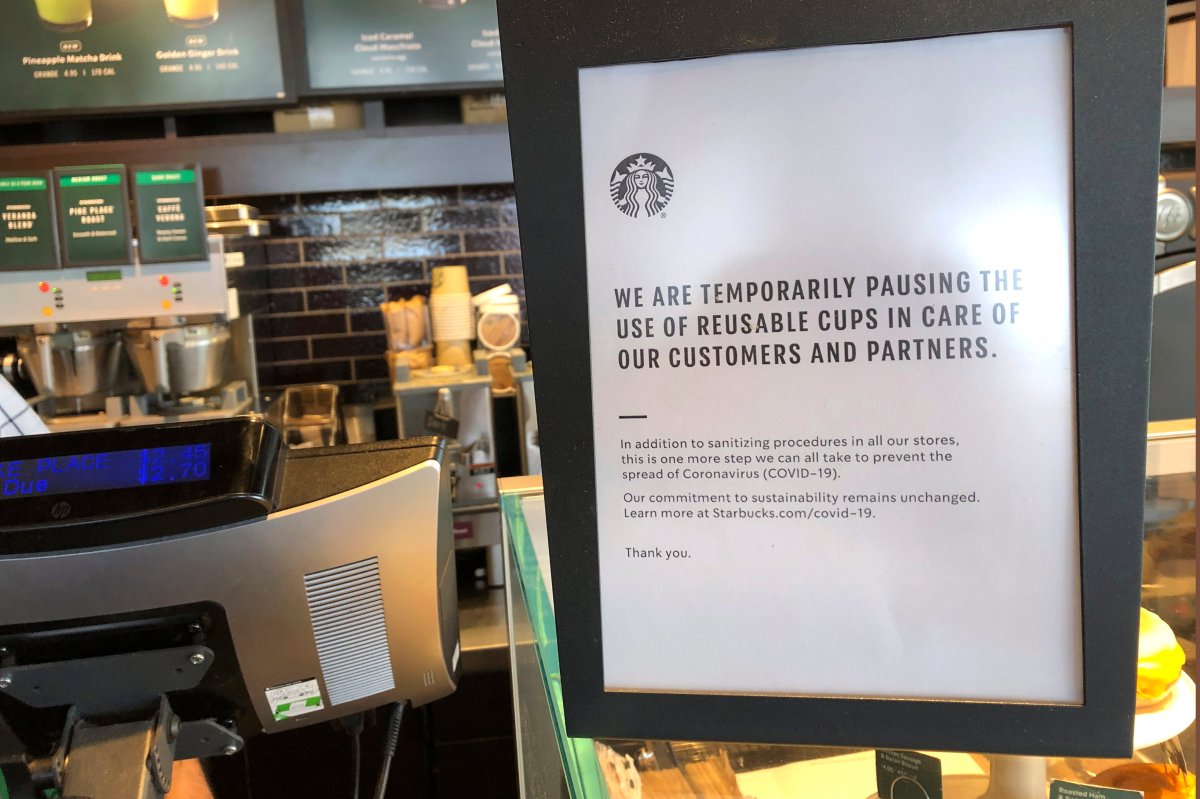Brewing concerns over the new coronavirus have led at least three coffee giants to stop accepting reusable cups for now.

On Wednesday, Starbucks announced it will stop accepting personal, refillable coffee cups from customers in both the U.S. and Canada.
Customers who do bring in their reusable cups or mugs from home will still receive a 10-cent discount but their beverage will be served in a single-use cup instead.
In an open letter posted online, executive vice-president Rossann Williams said Starbucks has also ramped up cleaning and sanitizing for all company-operated stores, and postponed or “modified” any large company meetings.
Two days later, Tim Hortons announced it’s also not accepting reusable cups in its nearly 4,000 restaurants across Canada.
“Though health officials have not recommended any changes to current procedures, after listening to our restaurant owners and comments from our guests, we are going to pause on accepting reusable cups at this time,” the company said in a statement Friday.

Second Cup also temporarily halted personal cup use as of Thursday, with in-store drinks still served in ceramic mugs, the company said.

Get weekly health news
The coffee chain said it will still honour a 20-cent discount for anyone who brings in a reusable mug.
The store’s ceramic mugs are “washed in high-pressure sanitizers,” the chain said in a statement to The Canadian Press. The company has also reminded staff to monitor the machine’s temperature and wash their hands before unloading dishes, and has increased the number of times its cafes are cleaned each day.
So how exactly does this help prevent the spread of COVID-19? Jason Tetro, a microbiologist and host of the Super Awesome Science Show podcast, says there are two reasons why companies are taking these steps.
“One is transmission to customers, and the other is transmission to workers,” he said.
A reusable cup handed over the counter could be contaminated: “The way that works is that the droplets or other bodily fluids that would be on the cup, in the process of making a new drink, could possibly lead to spread of the droplets to other equipment that could then be used to prepare drinks for other people.”
Essentially, companies are preventing the risk of transmission to customers or to their workers by simply not allowing these cups to be used for now.

“It’s sort of that trade-off,” Tetro said.
“Yes, there’s the environmental concerns of having to go back to single-use, but in the same respect, you have to think about the safety not only of your customers but also of your staff.”
Coffee shops aren’t alone in closely monitoring their response to the new coronavirus. Some transit agencies have escalated their efforts to clean vehicles and stations and switched to more aggressive anti-microbial cleansers as a precautionary measure.
There are anti-microbial products that essentially have “residual effects,” Tetro explained.
“In other words, you spray it on and it kills everything, but then it sticks around and then it kills whatever comes into contact with it.”
— With files from The Canadian Press










Comments